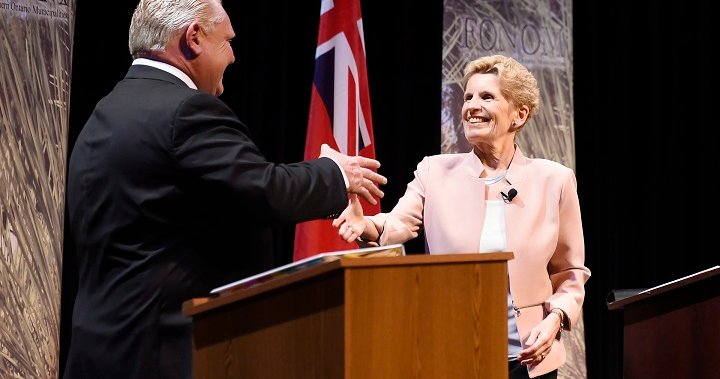In a significant shift from longstanding protocol, Ontario cabinet ministers and premiers will now carry the prestigious “Honourable” title permanently, according to an announcement from Premier Doug Ford’s office on Monday.
The change, which takes immediate effect, represents a notable departure from the traditional practice where only former premiers and those who served on the provincial executive council for at least five years could retain the honorific after leaving office. Under the new guidelines, this distinction will extend to all individuals who have served in these senior positions, regardless of their tenure length.
“This change recognizes the significant contributions and dedication of those who have served in Ontario’s highest public offices,” said Premier Ford in a statement obtained by CO24 Politics. “Their commitment to public service deserves lasting recognition.”
The decision aligns Ontario with several other Canadian provinces that have already implemented similar protocols. Quebec, British Columbia, and Alberta have established precedents by allowing their former cabinet ministers to retain the honorific title permanently, reflecting a broader national trend toward acknowledging public service at the provincial executive level.
Constitutional experts note that while the change is largely ceremonial, it carries symbolic importance in Canada’s political landscape. Dr. Eleanor Richards, professor of political science at York University, explains: “These titles serve as recognition of the unique responsibilities and public trust placed in individuals who serve at the highest levels of provincial government. The permanence of the title acknowledges that this service represents a significant life commitment.”
Critics, however, question the timing and necessity of such a change. Opposition leaders have suggested the move serves as a distraction from pressing policy challenges facing the province. “Ontarians are concerned about healthcare, education, and the cost of living—not ceremonial titles,” noted Peter Greenwood, political analyst at the Centre for Public Policy Research.
The protocol change affects approximately 245 living former Ontario cabinet ministers who previously lost the designation upon leaving office. The Premier’s office has confirmed that the change will be applied retroactively, allowing all living former ministers to immediately adopt the lifetime designation.
This shift in protocol occurs amid broader debates about the modernization of government traditions and honorifics throughout Canada’s political institutions. While largely symbolic, such changes reflect evolving perspectives on how public service should be recognized and commemorated in contemporary democratic systems.
As this new tradition takes root in Ontario, a question emerges for civic consideration: In an era of increasing skepticism toward political institutions, does the permanence of honorary titles strengthen public respect for government service, or does it further distance political leadership from the citizens they represent?










